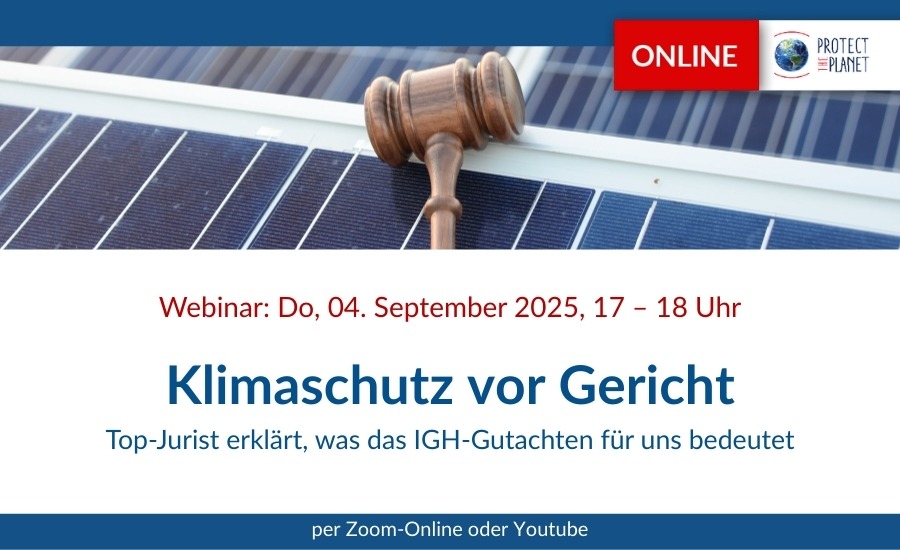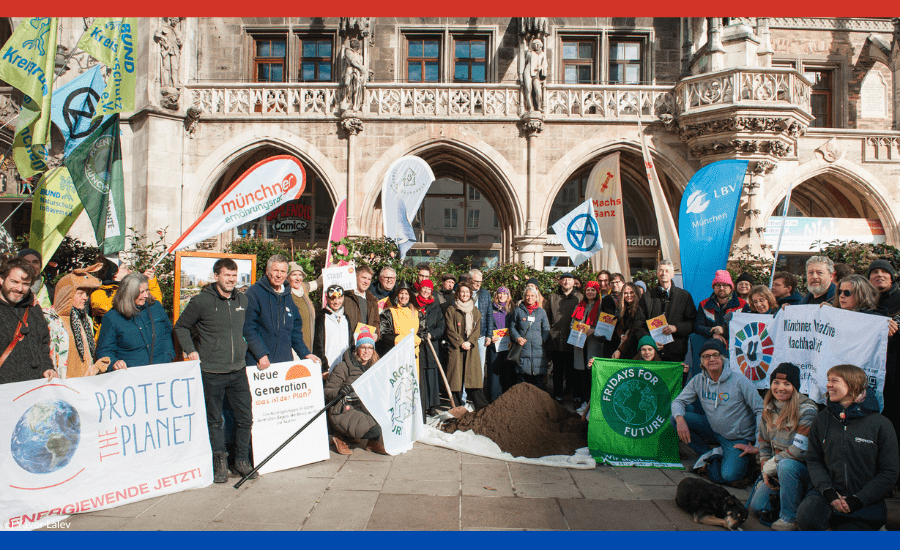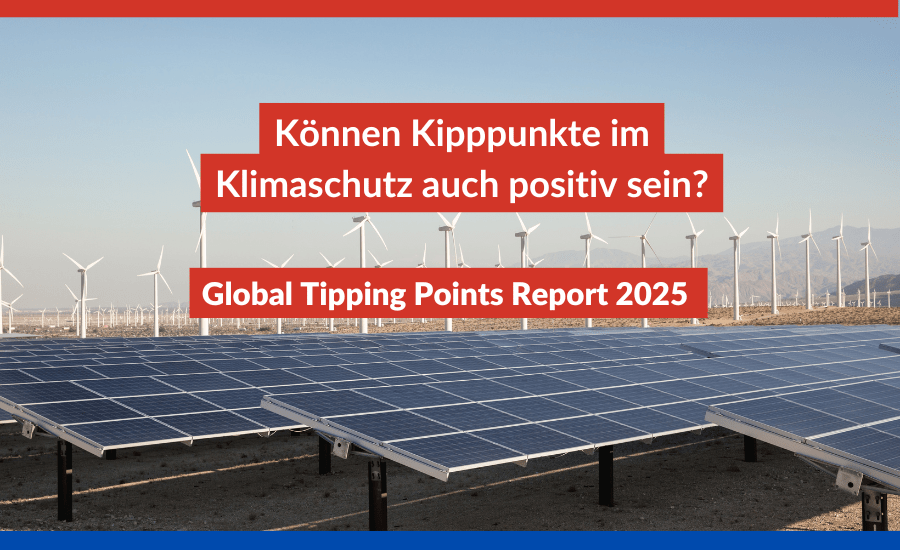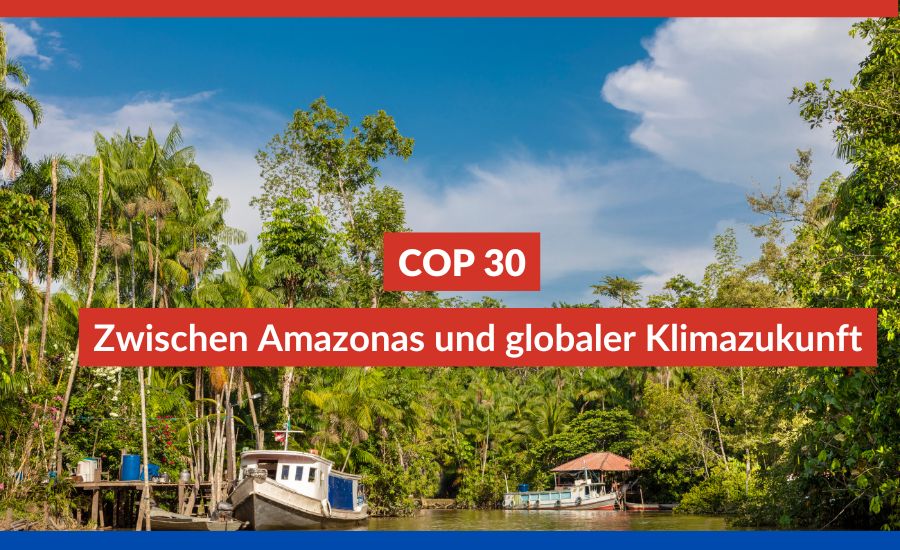Legal expert: Wave of lawsuits looms. Germany must be climate neutral now!
Protect the Planet is today publishing an analysis by Prof. Dr. Dr. Felix Ekardt, which assesses the consequences of the spectacular climate report issued by the International Court of Justice (ICJ) in July 2025. Controversial: The 1.5-degree target is binding under international and human rights law – industrialized countries must already be climate neutral. States can sue other states before the ICJ.
In a 14-page analysis published just a few weeks after the release of the spectacular climate report by the ICJ, legal expert Prof. Dr. Dr. Felix Ekardt from the Research Unit Sustainability and Climate Policy in Leipzig shows that:
“The 1.5-degree limit is binding for all countries. The remaining greenhouse gas budget for industrialized countries such as Germany has already been exceeded. If the German government and the EU Commission continue to aim for climate neutrality only in 2045 or 2050, there is a risk of billion-dollar lawsuits from countries in the Global South, which are particularly severely affected by climate change,” says Felix Ekardt.
Germany must therefore become post-fossil fuel in the near future, regulate companies and private individuals more consistently, and is obliged to refrain from any deterioration. According to Professor Ekardt, the ICJ considers fossil fuel subsidies or the development of new fossil fuel sources (as is currently the case in Reichling, Bavaria) to be potentially “culpable behavior.”
If the political majorities in Germany and the EU continue on their course back to the fossil fuel era, the ICJ opinion will also have a massive impact on ongoing climate lawsuits: the ICJ’s reasoning on international human rights and climate protection standards also affects the interpretation of national catalogs of fundamental rights. In Germany, constitutional complaints calling for more effective climate protection have been filed and were accepted for decision by the Federal Constitutional Court a few days ago. Similarly, a constitutional complaint calling for better biodiversity protection, supported by Protect the Planet, has been filed – the first of its kind worldwide.
“The ICJ opinion confirms what we have been calling for since our foundation: climate protection now—not in decades—and the 1.5-degree limit remains valid. Anyone who continues to promote fossil fuels is not only acting negligently and irresponsibly, but also in violation of international law and human rights,” emphasizes founder and Protect the Planet founder Dorothea Sick-Thies.
“The current federal government is the first ever to roll back climate protection measures. The ICJ opinion gives tremendous momentum to the wide-ranging and justified criticism of Germany’s climate policy – following this analysis, we expect significant implications for politics and jurisprudence, including ongoing proceedings in Germany,” said Protect the Planet CEO and climate litigation expert Markus Raschke.
Excerpts from the analysis by Prof. Dr. Dr. Felix Ekardt:
- “The ICJ considers the 1.5-degree limit to be a human rights obligation, not only a climate law obligation.”
- “The ICJ considers further approvals for the development of new fossil fuel sources and fossil fuel subsidies to be culpable conduct.”
- “The ICJ has indicated that, in addition to monetary payments, technology transfer may also play a role as compensation for damages.”
- “EU legislation can be addressed indirectly – on the one hand through national constitutional complaints, and on the other hand through preliminary ruling proceedings […].”
The report is available for download as a PDF file here:
Webinar | Klimaschutz vor Gericht: Top-Jurist erklärt, was das IGH-Gutachten für uns bedeutet (Climate protection in court: Leading lawyer explains what the ICJ advisory opinion means for us)
Date: Thursday, September 4, 2025, 5:00–6:00 p.m.
Duration: 60 minutes (including Q&A)
Location: Online (Zoom & YouTube livestream)
To register













